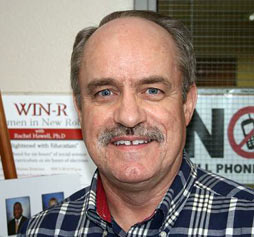By Kristine Behrhorst/reporter
As a young person and even as an adult, few bonds are more influential than those of a mentor, a TCC administrator said recently.
Dr. Kathleen Noble, associate vice chancellor of continuing education services, presented Selecting a Mentor Who Will Guide You Through Your Future Nov. 15 on NE Campus during the Women’s Leadership Forum, sponsored by Women in New Roles.
Mentoring, Noble said, is a mutually beneficial relationship between a mentor and a protégé. Mentors can be personal/professional, male/female or formal/informal. Formal mentoring consists of networking, counseling and friendships. Informal mentoring consists of teaching, soft skills, protection and critical, candid evaluations.
“Mentors help keep you out of trouble,” she said. “They are there to listen, and look at your faults and strengths.”
Some types of mentoring include natural, situational and supervisory mentoring. Noble said natural mentoring is usually a mother and occurs all at one time while situational mentoring is short lived and happens for a reason. Supervisory mentoring includes good supervisors, the mentor and subordinates.
Defining personal values will help clarify what mentoring means, Noble said.
“Be sure to select someone you trust who has mentoring skills and has the professional skills you desire,” she said.
Communication and getting the most of a mentoring experience will help people achieve their desired outcomes.
“When you have a mentor, be sure you know how to communicate with them, define how often you both will meet and have feedback processes in place,” she said.
One’s role as a protégé includes listening, observing, asking questions, doing what the mentor suggests and saying “thank you,” Noble said.
“How do you know if you’re outgrowing your mentor?” she asked. “When you move on to another mentor, outgrow the mentor, move up in a position and it becomes personal.”
Noble said some mentoring hiccups include personal barriers, unprepared mentors, working with someone in the same chain of command, long distance mentoring and goal setting.
“How do you know when to become a mentor?” she asked. “When you recognize that mentees need your expertise and participation.”
Noble has been a college educator for 25 years. Currently, she is in charge of continuing education services for all TCC campuses, including corporate and work force education.
In her career, she has written three business math books and a book for professional educators and high school teachers.
Noble said her greatest accomplishment was doing what she loved while working and having children.
For more information on mentoring, log on to www.whomentoredyou.org and www.mentoring.org.
January is national mentoring month, the theme is “Pass it on; become a mentor.”




























